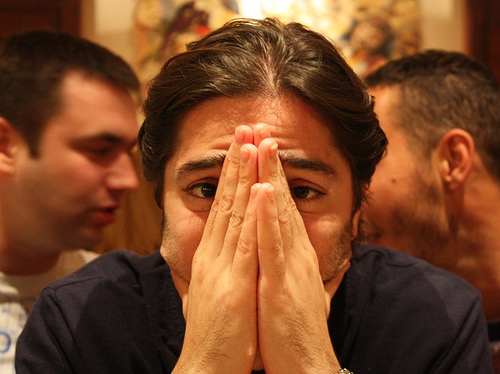If we can refrain from harming others in our everyday actions and words, we can start to give more serious attention to actively doing good. – Dalai Lama

How do you un-say something they overheard? If you wouldn’t say it to their face, should you say it at all? If you wish to refrain from harming others, I wouldn’t say it at all.
What does that mean?
This quote starts by asking us to consider how we act in our everyday life. What do we do, and what do we say? We are being asked to consider how these things could cause others to feel as if they had been harmed.
Insults and belligerent actions are the less subtle things we might do, but there are words or acts of omission as well. What might we have for someone else or said to someone else which we did not do for another person?
Once we are treating others well, we get to the second half of the quote, which is about actively doing good for others. How much good will you be able to do if you still harm others, even if it is unintentionally?
To me, the inferred point of the quote is that it’s hard to do good for only some of humanity. If one is harming one group and trying to do good for another group, you’re not going to get much done, right?
Why is not harming others important?
Well, that’s easier to answer if we flip it around. When would it be important to actually harm another? Stated that way, I believe it becomes self evident that it is very important to not harm others.
When we harm others, we also harm ourselves. Consider the damage done to our spirit when we say that we can do something harmful to that person. There is damage to you from that thought, and it is multiplied when an action is undertaken.
Even in inaction we can harm others. If we observe someone else harming another, yet take no action, we allow our spirit to be damaged. Whether it is by word or deed, we still are injured. And, of course, so are the others.
By focusing on refraining from hurting others, both actively and passively (or consciously and inadvertently), we can begin to heal our spirit. If we focus on what makes us the same, and not on what makes us different, I believe it will be much easier to avoid harming others.
Where can I apply this in my life?
With a badly damaged spirit, how can we truly focus on doing good for others? That, to me, is why the quote asks us to first fix ourselves. We need to remember that we are all humans, even if our skin is a different color, or we come from a different place.
While we can’t live our lives in terror of accidentally causing someone distress, neither should we live our lives looking for an opportunity to cause harm. The other thing to remember is that there are people who actively look for the opportunity to be offended. Not much we can do about that, besides be aware of them.
While we all say different things to different people, and treat some better than others, hopefully that is strictly a matter of familiarity, and not a matter of prejudice. The question then becomes how can you treat strangers and less familiar people better?
But how do we harm others in our actions and words? Do we use words which are fine with certain close friends, but may cause issues if other people were to overhear? What about a casual gesture or action which is fine with some people, but has a different implication in a different crowd?
Consider the classic party scene from TV or movies, where someone is talking among friends, not knowing that they are being overheard. A casual comment is made, but an injury also is caused. While there is usually a lengthy apology, wouldn’t it have been better to not have caused the injury in the first place?
Can you think of a time in your life where you, or someone you know, has harmed someone with their words or actions? What did you learn from the experience? How have you used that knowledge moving forward in your life?
What would you say to someone you saw who was about to do the same thing? How would you try to convince them that they were doing something harmful? Have you actually shared this knowledge with anyone else, or will you take your secret with you to the grave?
I believe that simply by our own concerted effort to refrain from harming others, by action or inaction, by what we say or fail to say, we will be active in doing good. Once we have a handle on our own doings, we can then move on to actively helping others.
Do we need to perfect ourselves first? I don’t believe that would be a very good idea, as we will be working on ourselves for a very long time before we even thought about helping others. But we need to start the change at home.
We must first attend to ourselves, and improve that which is deficient. Only then can we turn our attention to helping others.
From: Twitter, @DalaiLama
confirmed at : it’s his own feed…
Photo by del mich
Related articles
- Why those who remain neutral, who don’t support the victim, are wrong. (healingfromcomplextraumaandptsd.wordpress.com)
- Getting along even though we are different: and what I believe in (iconoclastthinker.wordpress.com)







Reblogged this on Reason & Existenz.
Pingback: Textimony 20120822 | Reason & Existenz